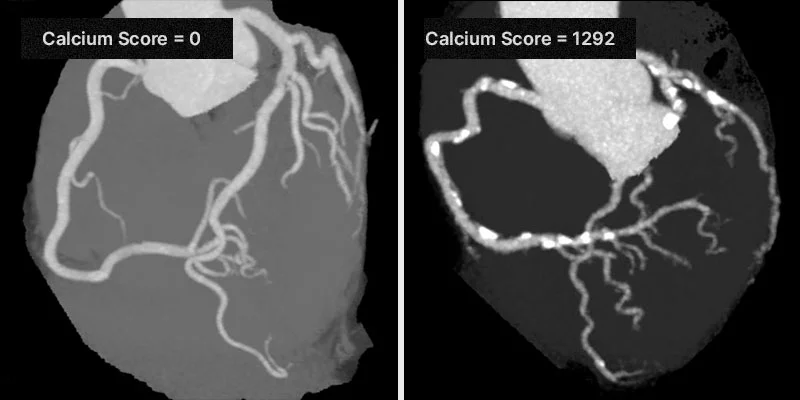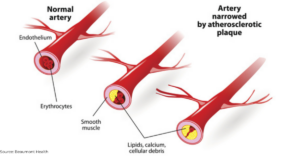Over 40? Why You Need a Coronary Calcium Score

A Coronary Artery Calcium Score (CAC) is a quick, painless CT scan that helps detect early signs of heart disease before symptoms start.
“I’ve seen too many patients suffer heart attacks that could have been prevented by knowing their Coronary Artery Calcium (CAC) Score. The CAC Score is one of the most powerful tools we have to detect heart disease early—before symptoms appear. I strongly recommend getting a CAC scan. It can truly save lives.” – Dr. Robert Segal, MD, FACC, RPVI
What Is A Coronary Calcium Score?
A coronary calcium score (also referred to as a heart scan) is a specialized diagnostic exam which provides x-ray images of the blood vessels of the heart. This test is performed to measure the buildup of calcified plaque in the arteries of the heart. A higher coronary calcium score may reflect a higher probability of coronary artery disease and a consequent higher risk of heart attack.

Why Is Coronary Calcium Score Not Widely Known?
The coronary calcium score is a non-traditional risk factor and is not a routine screening test like cholesterol checks or blood pressure measurements. Many physicians concentrate on conventional risk factors; insurance does not usually cover the scan, so it is less often mentioned. Still, awareness is rising as more research shows how valuable it is in forecasting cardiac disease.
How Should One Go About Getting Their Coronary Calcium Score?
See your cardiologist first. Those between the ages of forty and seventy who have risk factors like high cholesterol, high blood pressure, or a family history of heart disease are usually advised. Usually done at an imaging facility, the scan itself is fast and non-invasive.
How do you prepare for a Coronary Calcium Score?
No real preparation is required for a coronary calcium score, but you should avoid nicotine and caffeine for a few hours prior to your appointment as these will have a short-term effect on your heart and skew test results.
Why is a Coronary Calcium Score performed?
A coronary calcium score is performed, sometimes in combination with other tests and diagnostic procedures, in order to give your doctor a more accurate picture of your risk of cardiac health issues. Getting a measure of the amount of plaque in your blood vessels can help inform your cardiovascular treatment plan and also make it possible for your doctor to spot the signs of coronary artery disease even without the presence of any noticeable symptoms
What can you expect during a Coronary Calcium Score?
Once a doctor has recommended a coronary calcium score and the necessary forms have been filled out, you will receive the exam itself at a radiology center. There is no IV and you are not required to fast before the test. The whole examination will take between 15 and 45 minutes depending on wait time.
What is the followup like for a Coronary Calcium Score?
After receiving a coronary calcium score, you will have a follow-up appointment with your cardiologist. The doctor will assess the data and explain your coronary calcium score (a number ranging from 0 to 400), then use this information to craft a treatment plan that will minimize your future risk of heart disease or other cardiovascular complications.
What are the potential risks for a Coronary Calcium Score?
There is very little risk associated with a coronary calcium Score, which is far outweighed by the benefits of being able to diagnose potential heart issues early on. While a coronary calcium score does involve some exposure to radiation, it is a very small dose – roughly the same amount you are naturally exposed to in a year – which is considered to be safe.
Are there related tests to a Coronary Calcium Score?
A coronary calcium score may be used alongside other diagnostic procedures to determine your level of heart health with the utmost accuracy. Other tests which may be recommended include stress tests, echocardiogram, or ECG. In some cases, a coronary CT angiography or cardiac angiogram may be called for as well.
*Please Note: A cardiology consultation is required to determine if you’re right for a coronary calcium score, and then you will be referred to one of our trusted centers.




